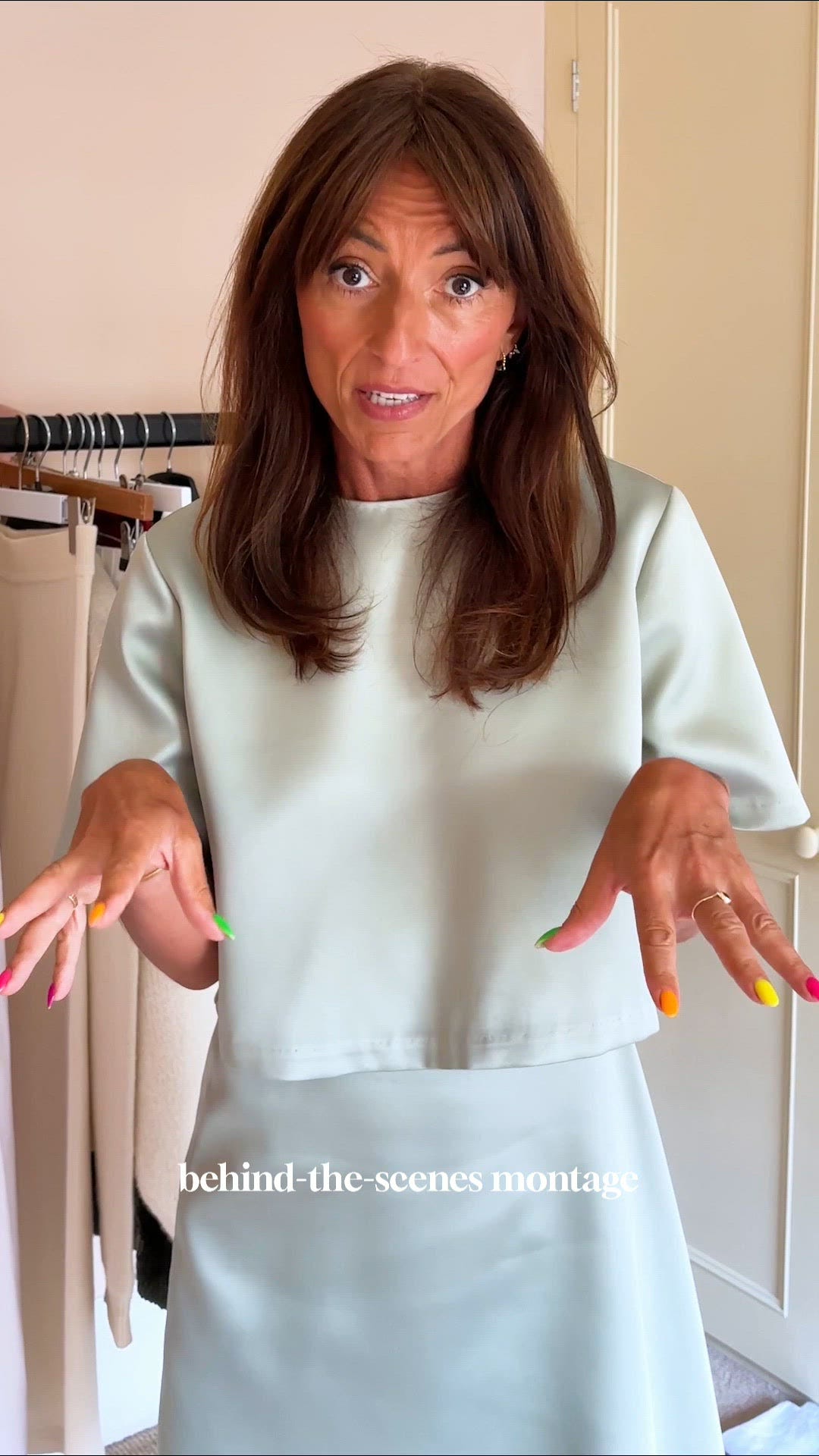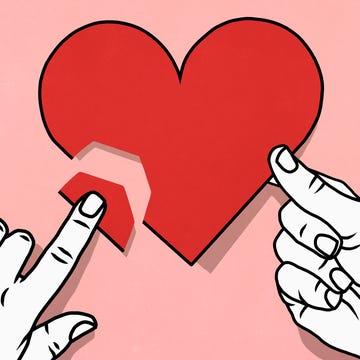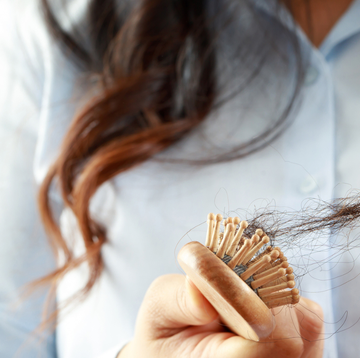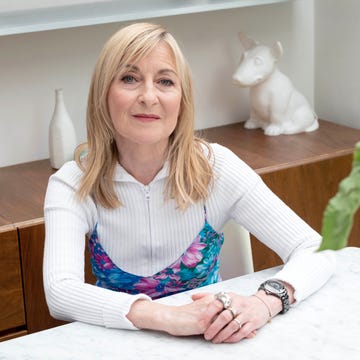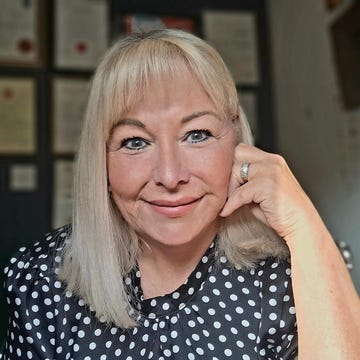Life is good. At last, I’m well over my divorce. My children are pretty much grown-up and at university. I’m dating the loveliest man. I’m lucky to be defying the threat of ageism by having a job that challenges me and makes me financially independent.
But I weigh too much to be considered healthy and am tired of trying to live my life with the equivalent of a hefty three-year-old strapped to my back. Time to tackle it head-on.
When I last set my mind to getting healthier, it was nearly a decade ago. The combination of a supervised low-carb/high-protein diet and plenty of vigorous exercise led me to lose three stone within a year. So I blew the dust off the same diet plan and started it again.
But nothing.
What to read next
Somehow, my postmenopausal metabolism refused to play ball. What had worked before wasn’t working now. And the intense exercise left me feeling more tired than energised. The cortisol it produces is not necessarily a friend to middle-aged women.
So, I took the plunge. I logged on to the Boots online doctor service and applied to join its medicated weight-loss programme. I was prescribed Mounjaro* and started injecting myself once a week. It was amazing. The needle was tiny and barely the thickness of a shaft of hair.
The side-effects were minimal – I was a little burpy, but that was it. But the miracle was that as someone who woke up thinking about breakfast and carried on thinking about food all day, the ‘noise’ around food just disappeared. I became one of those people I thought only existed in films who ‘forgot to eat’. I had never forgotten to eat.
The weight began to fall off. Cankles turned into ankles. Cheekbones long buried under soft folds of fat began to emerge. Within a couple of months, I had lost 25lb.
My poor, overworked joints breathed a sigh of relief. Running up the escalators at Tube stations was a breeze. Half of my wardrobe was available to me again. I proselytised about Mounjaro as if I were on commission for its manufacturer, Eli Lilly.
Are you waiting for the ‘but’? Because there’s a big but – though not mine any more (that’s now a much, much smaller butt, obviously!).
At first, I put it down to tiredness – maybe that extra glass of wine or work stress. Because along with all the weight I lost, I’d managed to misplace my orgasm.
I don’t mean to boast, because no one likes a show-off, but reaching orgasm had never been a problem for me. And thanks to the modern miracle that is HRT, it hadn’t suffered during menopause – if anything, HRT had boosted my libido.
Or maybe that was just the blessed relief of not being married any more to someone who had the sex drive of a dying slug and finding myself enjoying dating in midlife again?
What was interesting is that the desire was still very much there; it’s just that the climax was crazily elusive. I tried relaxing, staying in the moment, emptying my mind – but nothing.
After a few weeks, I decided to run a series of experiments. Could I reach a vaginal orgasm with a vibrator? How about a clitoral one? I ran the experiments in a series of different conditions – morning, evening, wine/no wine.
I could eventually, occasionally, get there, but only very rarely. It was like looking at a Magic Eye picture. If I let my gaze drift out of focus and relaxed my mind, I could
get glimpses of the image. But just when I thought I could see it, it would disappear as quickly as I hadn’t come.
And even in bed with my delightful, unselfish and talented boyfriend, it was as if someone had generously applied numbing gel to my undercarriage. This was beginning to worry me.
And since it was so obviously not down to anything he was or wasn’t doing, I tried
to explore other options.
I started doing some digging and went down a few rabbit holes on the internet, from academic studies of the effect of dual GIP/GLP-1 receptor agonists like Mounjaro on the sexual interactions of mice to Reddit channels approaching it a little more directly: ‘Is Mounjaro affecting your orgasms?’
The evidence of the Reddit community seems to be anecdotal at best, but I took the precaution of popping a few phials of ‘arousal awakening oil for the clitoris, inner labia and vagina’ to my Amazon basket just in case they were on to something. But I also found more than a few isolated references to a loss of libido, desire and sensory experience.
The weight-loss drugs work, in very simple terms, by switching on the receptor that tells you you’re full and switching off the one that tells you you’re hungry.
The networks that the brain uses to make choices about what we want and when we want it are shared by food, drugs, sex and any other pleasure-giving activities. So, it’s not beyond possibility that if you fiddle with them to achieve one outcome, there might be unintended consequences elsewhere.
I feel better about my body than I have in a decade, but my ability to take pleasure with it has receded. The irony of me trying to meet a more standardised view of what
a desirable woman ‘should’ look like, resulting in me kissing goodbye to my own sexual pleasure, has not passed me by.
Am I bad feminist for wanting to be healthier? Am I being punished for my vanity by whatever deity may or may not exist by her confiscating my orgasm? It feels like some modern-day Greek myth.
I feel hollowed out – in every sense. I’m charging towards my target weight to see if I can start reducing my Mounjaro dose and inch back towards the happy memories of orgasm without regaining the inches around my waist.
But if there has to be a choice between the two – health or happiness – I think I’d rather go out with a bang.
*Asked to respond to Katie’s experience, Eli Lilly would only say: ‘Unfortunately, we cannot comment on or give medical advice to individual patients. They should contact their healthcare professional.

